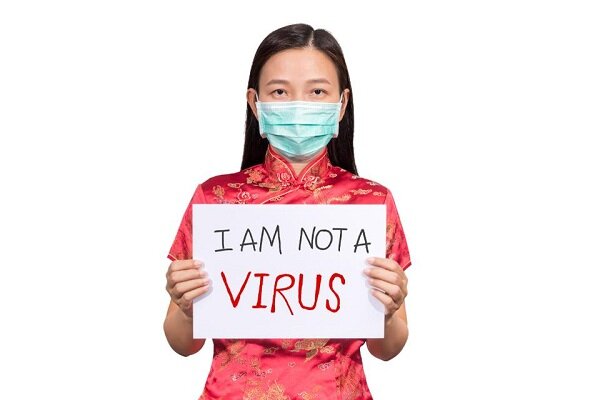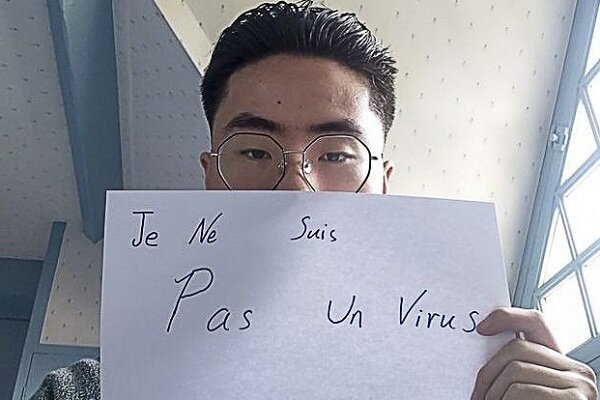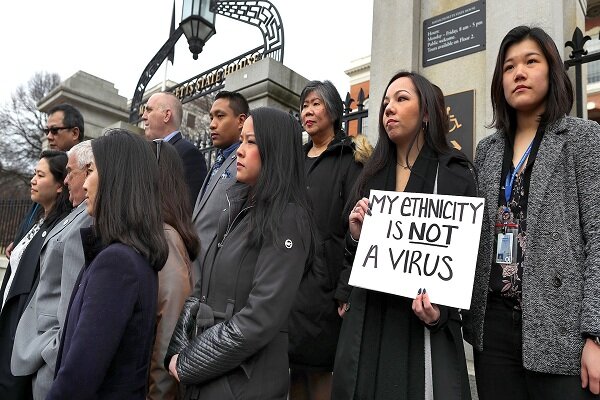In late December 2019, the Chinese authorities informed the World Health Organization (WHO) about the outbreak of a new type of pneumonia in the city of Wuhan, a large trade and industrial center with a population of 12 million.
In early January, Coronavirus disease (COVID-19) was announced by Chinese specialists as the virus behind the infection. It is a new strain that was discovered in 2019 and has not been previously identified in humans.
Coronaviruses (CoV) are a large family of viruses that cause illness ranging from the common cold to more severe diseases such as Middle East Respiratory Syndrome (MERS-CoV) and Severe Acute Respiratory Syndrome (SARS-CoV).
167 countries have been grappling with the outbreak since December. After China, the biggest foci are Italy, Iran, South Korea, Spain, Germany, France, the US, Switzerland, the UK, Netherlands, and Norway.

During the past month, the COVID-19 has been the topic of the global conversation, causing mass hysteria and worldwide panic.
Since the outbreak of coronavirus, there is an unexpected and unpleasant side effect on the coronavirus. Fear of this new virus is manifesting as racism against people who are of Chinese or Asian descent. Several accounts of racism and xenophobia have been reported on social media.
This novel virus has led to increased prejudice, xenophobia, discrimination, violence, and racism against Chinese people and people of East Asian and Southeast Asian descent and appearance, particularly in Europe and Northern America.

There are some reports about the people around the world who are being shunned, shamed, and verbally or physically assaulted as fear over the coronavirus spreads.
According to some experts and physicians, rampant ignorance and misinformation about the coronavirus have led to racist and xenophobic attacks against anyone in Northern America who looks East Asian.
Several Asian families in the Charlotte area are reporting that they have been the target of verbal abuse from people blaming them for the coronavirus.
On 10 March 2020, a Korean woman in New York City was confronted on the street by somebody yelling "Where is your corona mask, you Asian b…h?" before punching the woman dislocating her jaw.
In the New York City Subway, a woman wearing a face mask was punched and kicked by a man who called her "diseased".
"We, the Asian community, are under attack," said Tanny Jiraprapasuke, who was born and raised in Los Angeles.

On 13 February 2020, Los Angeles authorities spoke out against a number of bullying incidents and assaults towards the Asian-American community, including a middle schooler being beaten and hospitalized.
In a Philadelphia SEPTA subway station an Asian couple was surrounded by a group and brutally attacked.
Harassment and attacks on Asians have included a reporter for the Philadelphia Inquirer who was verbally harassed several times.
Chinese-Canadian businesses in Vancouver have reported a drop in business ranging from 50 to 70 percent. In the Greater Toronto Area, Chinese restaurants have reported a drop in sales ranging from 30 to 80 percent.
On 17 March 2020, two Korean men were stabbed in Montreal, prompting the Korean Consulate to issue a warning to those of Korean heritage in the city to be cautious and report any incidents to the consulate. Despite no apparent racial motives behind the attacks, the victims believed that the attacks were racially motivated.

The coronavirus outbreak has also led to racist behavior against Chinese people across Europe.
French newspaper Le Courrier Picard featured an Asian woman wearing a mask on its front page on 26 January 2020 with a headline "Yellow Alert".
Other French newspapers called the Covid-19 as "Chinese Virus" at the beginning of the outbreak which could stigmatize people of Chinese descent.
Some children of Asian descent were ostracized and mocked over their origins in middle schools near Paris.

Asians in France created a Twitter hashtag #Jenesuispasunvirus ("I am not a virus") to signal abuse.
"Racism against Asians is spreading even faster than the virus," said Sun-Lay Tan, who works in the art world and is French-born of Chinese and Cambodian descent.
The weekly magazine Der Spiegel in Germany has published a controversial cover that has been considered by some as blaming China for the outbreak and fueling xenophobia.
The Chinese Embassy in Berlin has acknowledged a rise in hostile cases against its citizens since the outbreak.
On 1 February 2020, a 23-year old Chinese citizen in Berlin reportedly received racist insults and was subsequently beaten by two unknown assailants, in an incident classified by police as "xenophobic".

In Moscow and Yekaterinburg, Chinese nationals are targeted by quarantine enforcing campaigns, as well as police raids, which were condemned as racial profiling.
According to an Ipsos MORI poll, 37% of Russian respondents would consider avoiding people of Chinese origin, the highest of the eight countries surveyed.
Chinese people in the United Kingdom say they are facing increasing levels of racist abuse.
In London, a student of the Royal Holloway University was verbally abused by train passengers at Clapham Junction station, while a similar incident was reported by passengers on the London Underground.
Tottenham Hotspur footballer Dele Alli posted a video on Snapchat where he wore a face mask and appeared to mock an Asian man seated near him in Dubai about the coronavirus outbreak. He later apologized and deleted the video.
A 24-year old Thai tax consultant in London was violently assaulted and robbed by two teenagers yelling "coronavirus" at the man.

Some countries in Africa and the Middle East are also seeing rising anti-Asian sentiment.
According to the Embassy of Japan in Egypt’s Cairo, store clerks have been hesitating to serve Japanese customers, and "corona" has also become a new slur with which to abuse Japanese people on the street.
Images of a South Asian migrant worker who was dressed as a human hand sanitizer while wearing a face mask for Saudi Aramco went viral online and sparked global outrage and was cited as another example of "coronavirus racism". The company later apologized for the incident.

Among these examples of racism, the remarks of the US President Donald Trump over the coronavirus have become controversial these days.
He is facing widespread condemnation after referring to coronavirus as the "Chinese Virus" immediately after calling on Americans to "band together" in the face of the pandemic.
Many were quick to condemn the president's decision to brand COVID-19 a "Chinese Virus," with Trump being accused, once again, of racism.
Meanwhile, China reacted angrily after US President Donald Trump referred to the coronavirus as “Chinese”, warning the US should “take care of its own business” before stigmatizing China.
While some governments and politicians have denounced such incidents related to the outbreak, others think much more could be done to show support for Chinese communities worldwide.
Last week, Michelle Bachelet, the UN human rights chief, called on member states to combat discrimination triggered by the virus.
ZZ/


























Your Comment